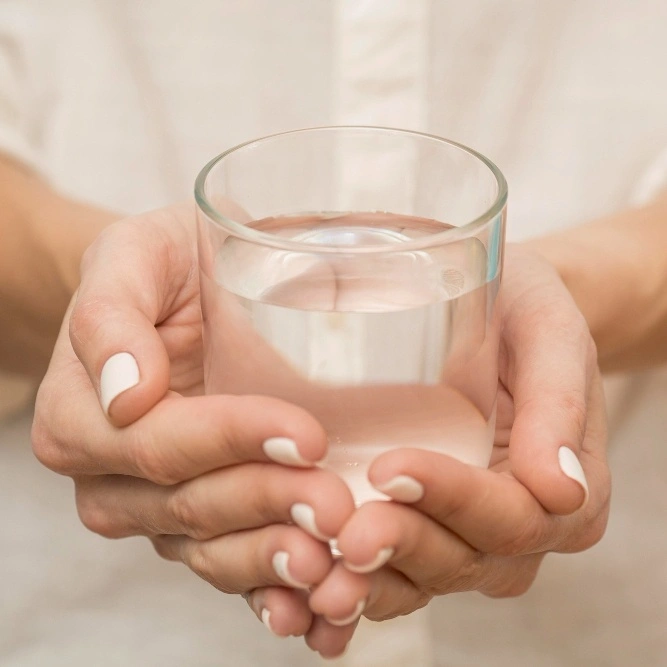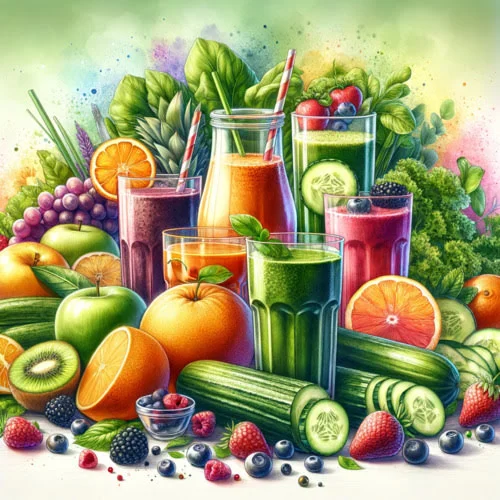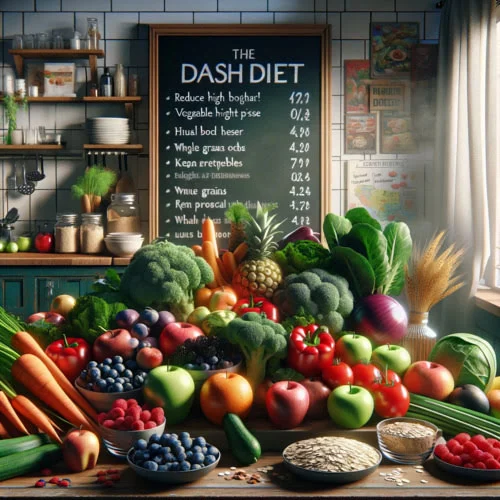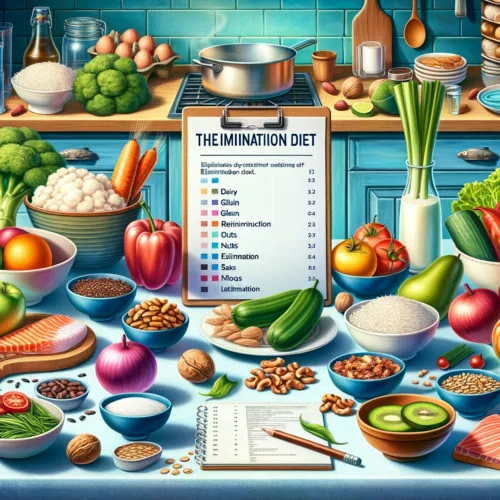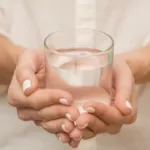Hello, friends! Today, I would like to share important information with you, such as the recommended daily water intake for a person. Water is not just a liquid we drink to quench our thirst; it plays a crucial role in our diet and is of immense significance to our bodies. In this article, I will explain the importance of water for the body and why it is essential to monitor its consumption. Let’s get started!
The Importance of Water for the Body
Water is a vital component of our bodies. Approximately 60% of our body is made up of water, and every cell requires it for proper functioning. Water performs numerous critical tasks, including regulating body temperature, lubricating joints, and sustaining the optimal functioning of organs and systems. It also aids in delivering nutrients and oxygen to cells and removing waste and toxins from the body through urine and sweat.
Moreover, water plays a crucial role in maintaining a healthy lifestyle. Proper hydration helps control appetite, as thirst is often mistaken for hunger. Hydration also influences energy levels, concentration, and overall productivity. If you experience fatigue or sluggishness, dehydration could be one of the reasons.
In the following sections, we will explore how the recommended daily water intake is determined and provide practical recommendations on how to consume an adequate amount of water throughout the day. Remember that every drop of water you drink brings you closer to a healthier and happier life. Stay with us and learn everything you need to know about the recommended daily water intake for your body!
Factors Affecting Water Requirements
1. Age:
Age is a crucial factor in determining the amount of water one needs to drink. Children and teenagers require more water relative to their weight due to their active growth and development. For adults, it’s essential to consider age-related changes, such as a decreased sense of thirst. Thus, it is recommended to monitor water intake and meet age-related needs.
2. Gender:
Gender also influences water consumption. Typically, men have more body mass and a higher metabolism compared to women. Therefore, men may need more water. However, each person is unique, and it is crucial to be attuned to one’s body and drink enough water regardless of gender.
3. Physical Activity:
Physical activity is a significant factor in determining water requirements. During exercise, the body loses more water through sweat due to increased body temperature and intensified breathing. Hence, it is essential to drink more water during workouts and physical activities to replace losses and maintain adequate hydration.
4. Climate:
Climate conditions affect water consumption. In hot weather or high humidity, the body requires more water to cope with elevated temperatures and maintain a normal body temperature. Therefore, increasing water intake in such conditions helps prevent dehydration and supports proper hydration.
Considering these factors, it is essential to monitor water consumption, drinking enough water throughout the day to maintain health and good hydration.
Water Consumption Recommendations
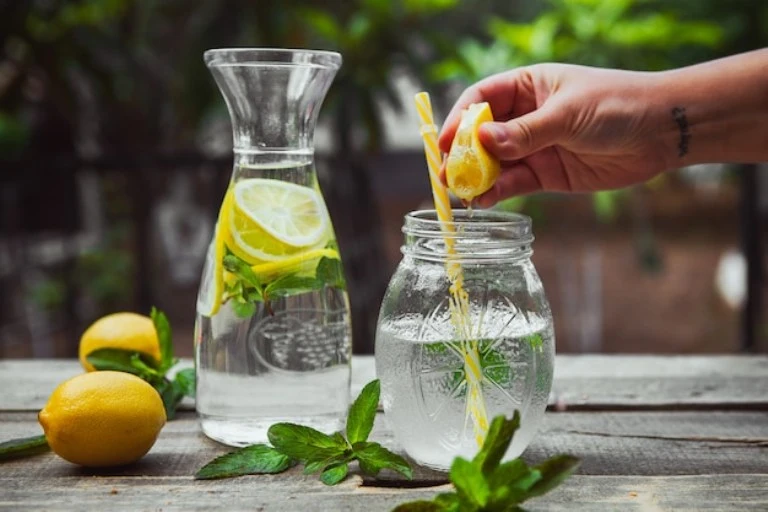
General Recommendations
1. Drink when Thirsty:
Drinking water when you feel thirsty is one of the simplest and most effective strategies. Our bodies regulate water needs well, so listen to your body and drink when it signals thirst.
2. Monitor Urine Color:
The color of urine can be an indicator of hydration. Light yellow urine usually signifies good hydration, while dark urine may indicate water deficiency, prompting the need to increase water intake.
3. Incorporate Water into Eating Habits:
Consider water a constant companion to your meals. Drink water throughout the day, not just during meals. However, be mindful that excessive water consumption during meals might reduce digestion efficiency.
Recommendations for Athletes and Physically Active Individuals
For those actively engaging in physical activities, additional water consumption is crucial. Here are some recommendations:
1. Hydrate Before Exercise:
Initiate water intake before starting your workout. This helps prepare the body for physical activity and reduces the risk of dehydration.
2. Drink During Exercise:
Physical exertion may significantly increase your water needs. Try sipping water during your workout to maintain optimal hydration.
3. Replenish Water Reserves After Exercise:
After physical activity, the body needs to recover lost fluids. Drink a sufficient amount of water post-exercise to restore the body’s water balance.
Remember, these recommendations are general and may vary based on individual needs and characteristics. Always listen to your body, and consult a specialist if you have any questions or concerns.
Recommendations for Pregnant and Breastfeeding Women
Pregnancy and breastfeeding require special attention to hydration. Here are some recommendations:
1. Increase Water Intake:
During pregnancy and lactation, your body requires more water to maintain health and support the baby’s normal development. Aim to increase your water intake, typically around 2-3 liters per day.
2. Consider Water Loss during Breastfeeding:
Breastfeeding can lead to additional water loss. You might need more water to produce breast milk. Pay attention to your thirst and drink extra water, especially during feeding.
3. Diversify Fluid Sources:
Besides water, you can consume other fluids like skimmed milk, freshly squeezed juices, green tea, low-fat soups, or non-carbonated drinks. However, avoid overly sweet or high-calorie beverages.
4. Watch for Signs of Dehydration:
Pregnant and breastfeeding women are more susceptible to dehydration. Monitor symptoms such as dry mouth, dark urine, dry skin, or fatigue. If you notice these signs, consult a doctor.
5. Remember Water-rich Foods:
Some foods, such as fruits and vegetables, contain a significant amount of water. Include them in your diet to get additional hydration and nutrients.
It’s important to note that every woman is unique, and hydration recommendations may vary based on your health condition and individual needs. Discuss your diet and water intake with a healthcare professional to ensure you’re getting enough fluids to support your health during pregnancy and breastfeeding.
How to Calculate Daily Water Intake
Correctly determining the recommended daily water intake is a crucial step in maintaining health and well-being. Here is a detailed explanation of how to calculate water intake for different categories of individuals, including men and women.
General Formula for Calculating Water Intake
The daily water intake for an individual can be calculated using the following proportion. It is generally recommended to consume about 30-35 milliliters of water per 1 kilogram of body weight. For example, a person weighing 70 kg would need approximately 2100-2450 milliliters (2.1-2.45 liters) of water per day.
Daily Water Intake for Men
For men, the approximate recommended water consumption is calculated, taking into account several factors:
1. Body Weight:
Use the formula mentioned above to determine the amount of water based on body weight.
2. Physical Activity:
If you are actively involved in sports or engage in physical exercises, you will need more water to compensate for losses through sweat and increased urine production. Add an additional 500-1000 milliliters (0.5-1 liter) to the overall daily water intake.
3. Climate Conditions:
In hot weather or high humidity, additional water is needed to prevent dehydration. Add another 500 milliliters (0.5 liters) to the overall daily water intake.
Daily Water Intake for Women
Women also have some unique factors that can affect their water consumption:
1. Body Weight:
Apply the formula mentioned above to determine the amount of water based on body weight.
2. Physical Activity:
If you participate in sports or engage in physical work, add 500-1000 milliliters (0.5-1 liter) to the overall daily water intake.
3. Pregnancy and Breastfeeding:
Pregnant and breastfeeding women need additional water to maintain their health and support the proper development of the child. Add another 300-500 milliliters (0.3-0.5 liters) to the overall daily water intake.
4. Climate Conditions:
In hot weather or high humidity, add another 500 milliliters (0.5 liters) to the overall daily water intake.
It is important to note that these recommendations are general and may vary depending on each individual’s needs. If you have medical issues or concerns regarding your water needs, it is recommended to consult with a doctor or dietitian.
Signs of Water Deficiency and Excess
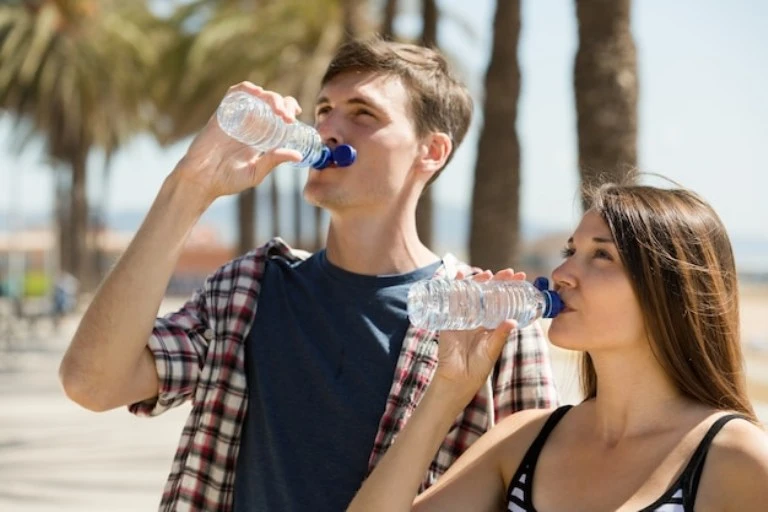
Water Deficiency
Dehydration can be harmful to health. Here are some signs of water deficiency:
1. Dry Mouth and Thirst
Feeling dryness in the mouth and constant thirst may indicate water deficiency.
2. Dark Urine
Dark-colored urine can be a sign of water deficiency. Healthy urine is usually light yellow or colorless.
3. Dry Skin and Lips
Water deficiency can cause dry skin, flakiness, and dehydration of the lips.
4. Fatigue and Weakness
Water deficiency may lead to feelings of tiredness, drowsiness, and overall body weakness.
5. Headache and Reduced Concentration
Water deficiency can affect brain function, causing headaches, difficulty concentrating, and poor memory.
Water Excess
While water deficiency is a problem, excess water intake can also have negative consequences for health. Here are some signs of water excess:
1. Frequent Urination
Constant and frequent urination may indicate excess water in the body.
2. Edema
Excess water can cause swelling, especially in the legs, hands, and face.
3. Diluted Urine
If your urine is very light or colorless, it may indicate water excess.
4. Reduced Sodium Concentration in the Blood
Excess water can dilute electrolytes in the body, leading to a condition called hyponatremia, which may cause symptoms such as headaches, nausea, and muscle cramps.
5. Electrolyte Loss
Excess water can lead to the dilution of electrolytes in the body, causing disorientation, weakness, and drowsiness.
It is crucial to maintain a balance of water consumption to avoid both water deficiency and excess. Listen to your body and monitor symptoms to maintain optimal hydration levels.
Practical Tips for Maintaining Adequate Water Intake
1. Establishing a Drinking Routine
- – Schedule Regular Drinking Times: Set specific times during the day when you will drink water. For example, you can have a glass of water after waking up, before each meal, and at certain intervals between meals.
- – Use Reminders: Utilize timers or apps to remind you to drink water. This will help you keep track of your drinking routine throughout the day.
- – Keep a Water Bottle Handy: Always have a water bottle with you for easy access to hydration, especially when you are away from home or at work.
2. Choosing Water Sources
- – Drink Clean Drinking Water: Prefer high-quality drinking water, such as filtered water or bottled drinking water. Avoid water with added sugars or artificial additives.
- – Hydrate Through Food: Consume foods with high water content, such as fruits, vegetables, and soups, to obtain additional water from your diet.
- – Limit Intake of Strong Beverages: Avoid excessive consumption of alcohol and caffeinated beverages, as they can have a diuretic effect, increasing dehydration.
3. Considering Water Balance During Meals
- – Drink Water Before Meals: Have a glass of water before meals. This not only helps maintain hydration but also may aid in controlling appetite and portion sizes.
- – Incorporate Water into Recipes: Use water as an ingredient when cooking, for example, in soups, porridge, and other dishes.
- – Be Mindful of Water Content in Food: Some foods, such as watermelon, cucumber, and celery, have high water content. Including these in your diet can contribute to your overall water balance.
Remember that recommendations for water consumption are individual and may vary based on factors such as physical activity, climate conditions, and others. Listen to your body and consider its water needs to maintain a healthy hydration level.
Conclusion

Proper water intake is crucial for our bodies and overall well-being. Water plays a key role in various physiological processes, including regulating body temperature, absorbing nutrients, eliminating toxins, and maintaining healthy skin. There are diets based on water consumption.
The daily water intake norm for an individual takes into account factors like age, gender, physical activity, and climate conditions. General recommendations suggest around 2-3 liters of water per day for adults, but individual needs may differ.
It’s important to be aware of signs of both water deficiency and excess in the body. Dehydration can manifest through dry mouth, dark urine, and dry skin, while excess water can lead to swelling and electrolyte imbalance.
To support adequate water levels in the body, follow practical tips such as establishing a drinking routine, choosing the right water sources, and considering water balance during meals. Pay attention to your body and meet its water requirements for optimal hydration.

